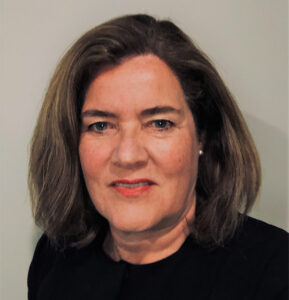Karen Doran: Embracing the concept of public value after time in the private sector
7 November 2019
● News and media
Karen Doran appreciates the importance of public value, particularly having moved from the private sector to the public sector earlier in her career.
Ms Doran, an ANZSOG alum, is currently driving innovative ACT Government reforms, and earlier this year became the 15th member of ANZSOG’s Alumni Advisory Council.
She is currently the Deputy Director General, Community Safety at ACT’s Justice and Community Safety Directorate after having worked in various portfolios in the ACT Government, and in the APS.
Ms Doran is a graduate of the 2005 Executive Fellows Program (EFP) and was also a participant in the China Reciprocal Program in 2015.

She said that the EFP had been an ‘incredibly useful’ experience given she had just joined the executive-level of the public service from the private sector.
“The EFP gave me a lot of valuable context and ways of understanding concepts like public value, in a short time,” she said.
“The China program was also an amazing experience. It opened up my mind to the country, its history and culture but importantly allowed me to learn so much about governance in China, something you could not get any other way.”
Ms Doran said that moving from the private sector to the public sector was a major change but one that she had not regretted.
“In the public sector there is a sense you are really contributing to things which have an impact on communities. That’s particularly the case in the ACT, where the government is closer to service delivery,” she said.
She said her experience in the private sector had proven useful in her public sector work and that the differences between working in the public and private sectors were not as black-and-white as people often thought.
“The starting perception is that private sector tends to be more commercial, while the public sector is more bureaucratic. I still think it’s good to keep a balance between the two worlds and to consider both value for money and good governance. Good process is important, but the idea of process for the sake of process is something I always try to question,” she said.
“I found the early ANZSOG experience gave me the tools, or language, to draw parallels to the concepts of profit in the public sector. The idea of public value is more difficult to define but it is very useful to measure what you are delivering against that concept.”
She said that the unique nature of the ACT Government – with a small population, no local governments, and a relatively young public service – allowed it a level of policy innovation that bigger jurisdiction might struggle to achieve.
She worked in the ACT Treasury when it commenced its tax reform program, transitioning from stamp duty to an ongoing land tax, and becoming the first jurisdiction in Australia to do so.
“This required a lot of work to ensure fairness and address impacts on different cohorts through the transition process,” she said.
“The ACT as a small jurisdiction has the opportunity to be agile and can be a pilot site for a range of policy areas. For example we were the first jurisdiction to fully implement the NDIS.”
She said that she wanted to use her time on the Alumni Council to ensure that the alumni community remained strong, and to ensure that smaller jurisdictions such as the ACT benefited from alumni activities.
“My ANZSOG program came at a turning point in my career and was very useful to me. I have been thinking about what I want to put back, and I’d like to help ensure that future public servants get the opportunity that I received,” she said.
“There is a risk these programs can be a ‘point in time’ benefit, I want to make sure there are sustained benefits for people, and make sure that networks continue.
“There’s a lot happening in the Canberra for the APS, which is great, but I also want to make sure there is a focus for ACT public service perspectives, and for smaller jurisdictions generally.
“I’m also interested in how ANZSOG alumni can work more closely with academics and universities.”
The Alumni Advisory Council was established in 2018 to represent the interests and views of ANZSOG’s diverse 3500-strong alumni community. It features public sector leaders from across Australia and New Zealand chosen to provide formal advice to the ANZSOG executive about the direction of the organisation and issues facing the modern public sector.
The Council is working on a range of ideas to ensure that alumni expertise and passion can be harnessed to address public sector challenges – including looking at the feasibility of ‘tiger teams’ to tackle specific policy issues.
